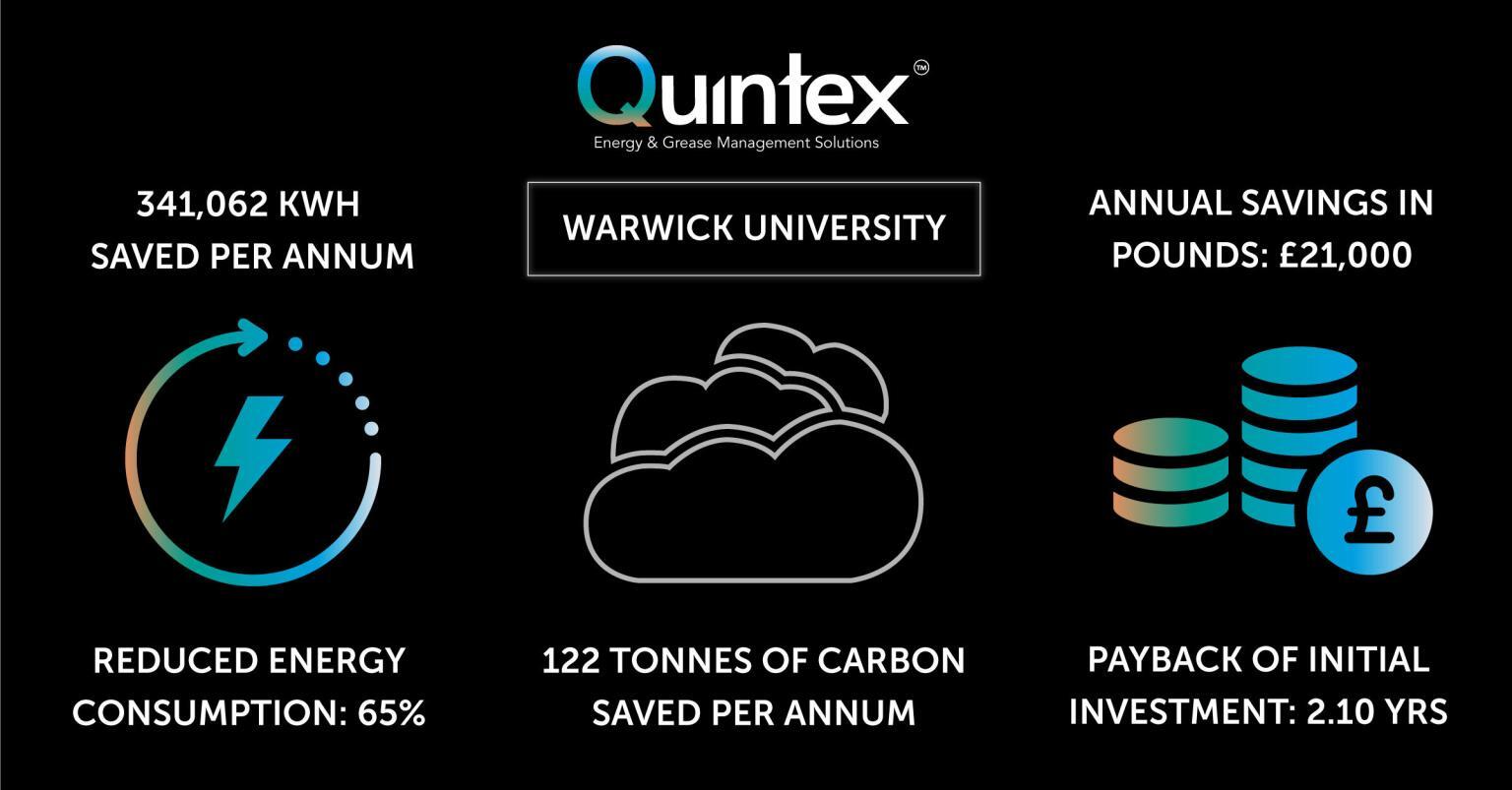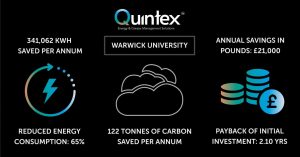Schools can’t save much by being smart with energy
This first point is far from the truth! Even the smallest of actions can make a big difference, such as turning off lights and equipment when not in use. However, when you aim to save money on a much grander scale, the results can be astonishing.
Take our work for Warwick University for example, one of Britain’s leading universities. From an environmental perspective, it has policies and procedures in place to promote best practice in the area of environmental sustainability. The University has installed our Demand Control Kitchen Ventilation System (DCKV) Cheetah into three kitchens across the campus, giving a total saving per annum of over £21,000 and a 65% energy reduction!
Find out more about our work with the University here.

